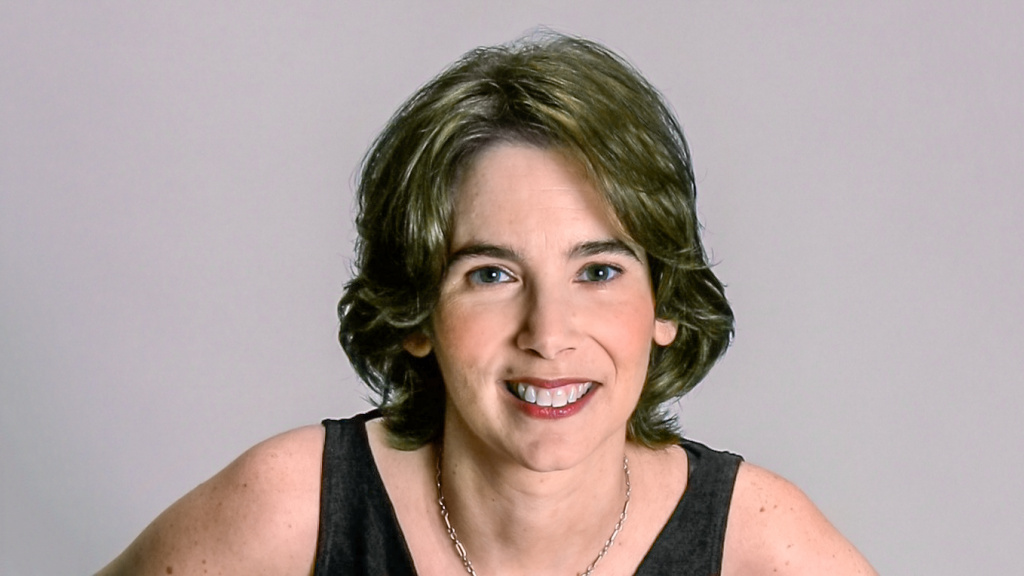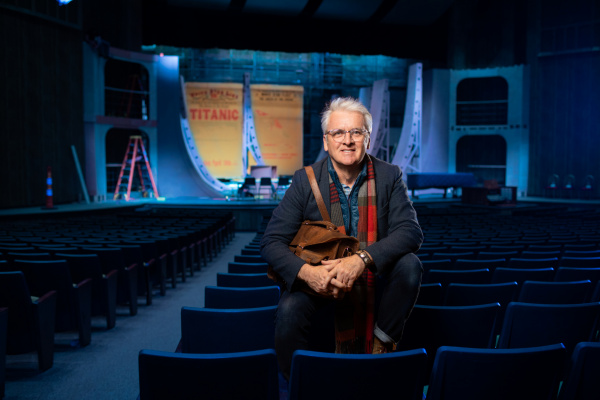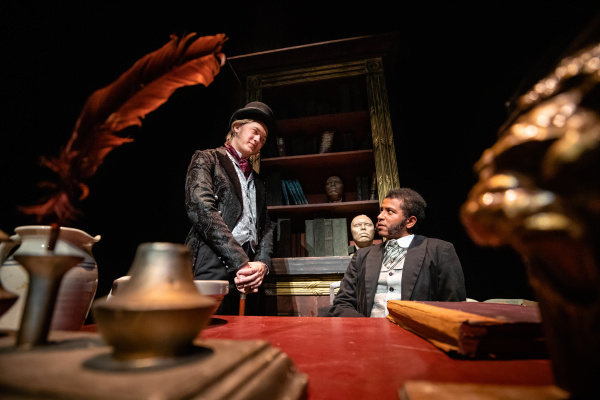“It was the best of times, it was the worst of times, it was the age of wisdom, it was the age of foolishness, it was the epoch of belief, it was the epoch of incredulity, it was the season of Light, it was the season of Darkness, it was the spring of hope, it was the winter of despair.” So begins Dickens’ classic A Tale of Two Cities.
Jill Santoriello shares her spring of hope and winter of despair in the process of writing the musical version of the novel and seeing it to Broadway.
BJU will present three performances of A Tale of Two Cities on March 11–13. The production will feature six guest artists: Glenn Seven Allen as Sydney Carton, Christopher Johnstone as Charles Darnay, Olivia Vadnais as Lucie Manette, Tony Mowatt as Dr. Manette, Patrick Dunn as John Barsad, and Laura McCulloch as Madame Defarge.
Access to the webcast performance at 7:30 p.m. March 12 can be purchased for $14.99 at bju.edu/twocities.
Why do you do what you do? What motivates you to compose musicals?
Ever since I was a little kid, I’ve always been a writer and obsessed with music, movies, and theatre — so I can’t tell you where the writing comes from, or why the writing comes. But the inspiration to create something might come from the same place that, I believe, my original affection for music and actors and stories sprang from.
I was a very sensitive kid, and I was always drawn to emotional, moving stories. Big stories. Grand stories. Inspiring stories. So when I began writing seriously and when I first decided I wanted to write a musical — somewhere in my early teens — the inspiration was to create something that would move people as I had been moved. To me, that seemed like the best and coolest thing you could possibly do — to create something that touched people. As the saying goes in one of my favorite and most life-changing musicals, “Look, I made a hat.”
What excites you the most when one of your musicals is being produced?
I’m being redundant again, but it’s mostly the opportunity to see the show with an audience and get to interact with them, meet them, and hear what they think. The ones who don’t like it rarely stick around to say anything to your face — which is a relief — but the ones who like and love it are a great privilege to meet and talk to, and it just makes you feel really good.
The other best thing about doing the show is the friendships that grow out of it. I’ve made lifelong friends with actors, directors, musical directors, etc., and it’s a nice bonus that happens with each new production.
When A Tale of Two Cities was first performed on Broadway, what was that like for you?
Once again, the best part of it was mostly the audience response and knowing that the audiences loved the show. And I did get to meet Julie Andrews once when she came to see the show. That was pretty cool.
Behind the scenes is not nearly as pleasant or as glamorous as you might imagine though, so I’ve blocked most of that out to be quite honest. I wasn’t able to appreciate getting to Broadway while it was happening to me because there was so much pressure, so much stress, and quite a lot of unscripted drama, too. If I had it to do over again I would try to enjoy some part of it the next time around.
You worked on Tale for many years. How long did it actually take for it to get to Broadway?
Well, it was anything but quick. Considering I first had the idea and started writing songs inspired by the story in my teens, and the show was not produced until some 24 years later, I’d say it was quite the epic odyssey.
Following the idea stage in high school, I didn’t do very much with it until I was about to finish college. Then I submitted some songs from the show to the BMI and ASCAP Musical Theatre Workshops in NYC and was accepted. I did the workshops but to my surprise, they did not lead immediately to a production on Broadway.
At the time I was working as a secretary at a talent agency in New York, and after a couple of years of that, I decided I really wanted to try and write the full show of Tale. Up to that point I had only written a handful of songs inspired by the story, but there was no script. I was still living with Mom and Dad in New Jersey at the time, commuting back and forth into the city every day. I told them I wanted to take some time off from a normal job to see if I could write the show. They agreed and gave me three months, and somehow at the end of that three months, the first draft of A Tale of Two Cities was born.
I did some rough demos with the help of my brother Alex, who was in the original Broadway cast of Les Miz and Chess, but again it did not lead to immediate success. My brother decided to produce and direct and star in a concert version of the show in Indianapolis in 1994, narrated by Richard Kiley. We did that, which was great, but which also did not lead to a full production.
I got a full-time job at Showtime, where I worked for 13 years. Somewhere in the middle of that, I met Ron and Barbra Sharpe (now the mom and dad of the TikTok sensation “Sharpe Family Singers”). Ron and Barb sang on a demo of the show, and when we were done they asked me if anyone was producing the show. I said no. They said, “Do you want us to try?” I said yes, and the rest is history.
We produced a concept recording of the show which took two years. Then we developed the show with different directors and readings over the next five years and raised money through presentations until we finally got a slot for our world premiere at the Asolo Theatre in Sarasota, Florida. We sold out before opening night, had a great run there, and were on Broadway less than a year later.
So it was literally about 25 years.
Why did you choose a work by Dickens to musicalize? Why specifically A Tale of Two Cities?
I chose Tale because I found the story incredibly moving and because Dickens was a great storyteller who wrote iconic characters. I’d seen the old movie version of the story when I was 12, and it stayed with me for many years before I started working on the show.
After my first aborted attempt to write a musical (Wuthering Heights) I knew I needed something that would continue to inspire me, possibly for many years, because I had a feeling it was not going to be a quick hop, skip and a jump to Broadway. I lucked out picking Tale because I truly think it is one of the greatest stories ever written, and it was not hard to stay interested in it and in love with it.
How do you address those who compare Tale to Les Misérables?
Honestly, I shake my head and laugh because Tale is about the French Revolution (the one that began in 1789), and Les Miz is not about the French Revolution at all but rather a small student-led insurrection in the 1830s or something. Also, Les Miz is about a convict who is chased by a policeman and who finds redemption in the first 10 minutes of the musical, and Tale is a romantic triangle about a drunken lawyer who finds love and acceptance and a second chance to redeem a wasted life. So, clearly very different.
The suggestion that there isn’t room for a Les Miz and a Tale musical is also funny because the Tale and Les Miz books were published like a year apart, were never compared or competing with each other in literary circles, and have co-existed happily for 160 years. Yet, for some reason, some folk who I fear are clearly lacking in imagination think that even though the books have been constantly in print for 160 years, and have had countless film and television versions of both stories, having a musical based on each of them is just too much. I think it’s silly, and sadly that limited kind of thinking has been an albatross around the neck of Tale for years, but what can you do?
In the end, it’s a great story in its own right, and I felt the story could and should be musicalized. So, despite any comparisons, I’m grateful that people continue to discover the show through productions, the CD and DVD on Amazon, or clips on YouTube.
What are you looking forward to with this production?
Well, I’m really looking forward to making the trip and actually getting to see it myself. I haven’t been to South Carolina since another production of Tale several years ago. I’m really excited about seeing what Darren (Lawson) has done with it, as I know he’s been working really hard on it for many months now.
See Also: From Benchmark to Curtain: A BJU Musical Journey
Having a cast with a mix of professional and student actors will also be a treat. The world premiere of the show at the Asolo in Sarasota also had a similar mix of actors from New York with theatre students and local actors, and that turned out pretty well.
Finally, I can’t wait to hear it with a live orchestra again. I’ve been in touch with Michael Moore, the conductor, and I’m sure the music is going to sound great.
Don’t miss BJUtoday’s other behind-the-scenes content on the 2021 production of the musical A Tale of Two Cities.








